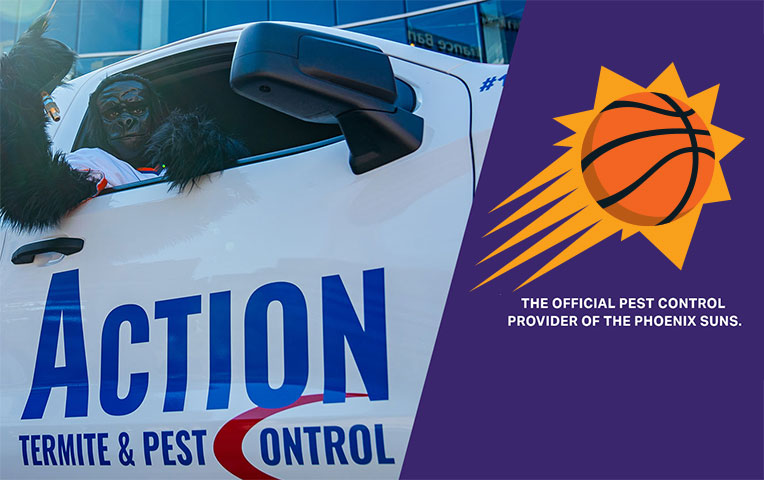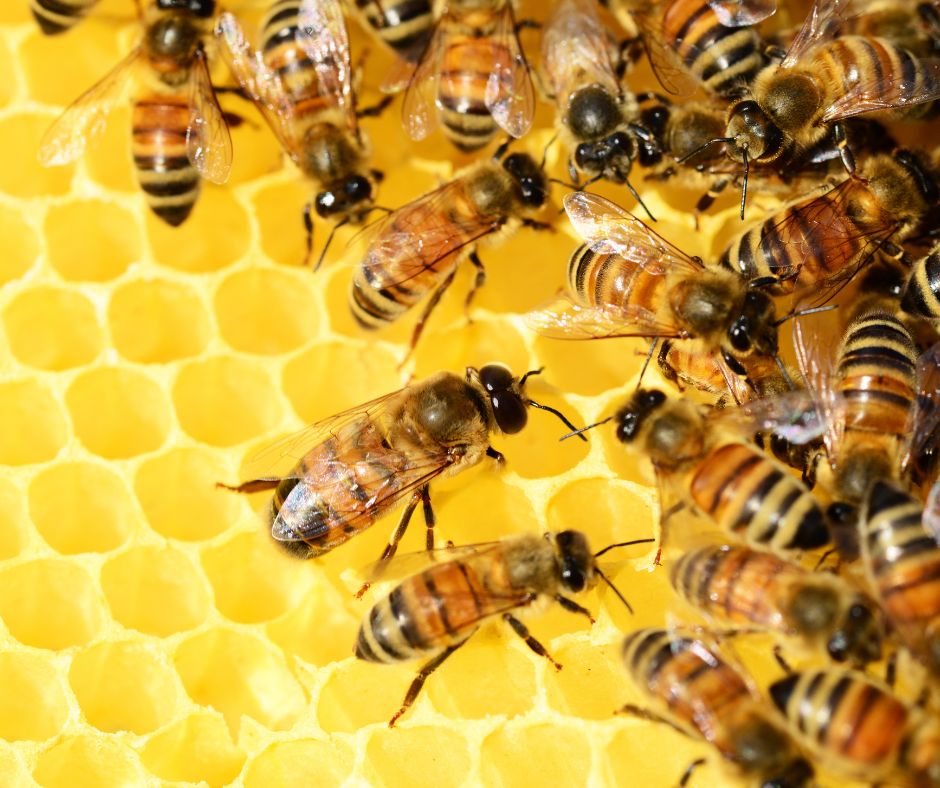Wildlife Removal Services in Port Charlotte for Safe and Safe Solutions
Discover the Relevance of Parasite Control in Keeping a Healthy Atmosphere and Treatment Methods

The Duty of Insects in Ecosystems
Bugs, often watched exclusively as annoyances, play a multifaceted role in communities that is vital for preserving eco-friendly balance. They contribute dramatically to different ecological procedures, consisting of pollination, nutrition cycling, and bug control. For example, many insect varieties, such as butterflies and , are essential pollinators for a wide variety of plants, which consequently supports biodiversity and food manufacturing.
In addition, parasites function as target for numerous predators, developing an important web link in food internet. This connection makes certain the survival of different species and aids manage populations within communities (Termite treatment Port Charlotte). Furthermore, decomposer bugs, such as specific beetles and fungis, contribute in breaking down raw material, therefore enriching soil and assisting in nutrition recycling.
Alternatively, while insects can be helpful, their overpopulation or invasion right into non-native environments might interfere with these ecological functions. This complexity highlights the significance of understanding insect dynamics, as efficient bug management strategies should consider both their environmental duties and potential influence on human tasks. Balancing pest presence while decreasing damage is essential for maintaining the stability of ecological communities and ensuring agricultural performance.
Health Threats Related To Insects
The visibility of pests in various environments expands past their ecological duties, as they likewise present significant health dangers to animals and people. Many parasites, including insects, parasites, and rats, are providers of illness that can have severe health effects. For example, rats are known to transmit hantavirus and leptospirosis, both of which can cause severe respiratory system and kidney problems, specifically.
Bugs such as ticks and mosquitoes are notorious for spreading vector-borne conditions like jungle fever, dengue fever, and Lyme disease. These illnesses can result in high morbidity and mortality rates, especially in vulnerable populaces. Additionally, bugs like roaches and bedbugs can worsen allergies and asthma, adding to respiratory system problems in people, particularly those with pre-existing conditions.
Furthermore, the presence of insects can bring about emotional stress and pain, influencing general wellness. Contamination of food and surface areas by pest droppings and continues to be can result in foodborne illnesses, highlighting the importance of keeping hygienic problems. Comprehending the health and wellness risks connected with insects is essential in recognizing the requirement of reliable insect administration strategies to protect human and animal wellness.

Advantages of Reliable Insect Control
Effective pest control is important for maintaining a healthy and balanced and secure atmosphere, as it constantly minimizes the countless risks related to parasite problems. Among the primary benefits of efficient insect monitoring is the decrease of carcinogen. Bugs such as insects, rats, and roaches are vectors for diseases that can impact both animals and people. By regulating these populations, the likelihood of illness transmission is substantially lowered.
Furthermore, effective parasite control safeguards residential or commercial property and frameworks from damage. Several insects, like termites and woodworker ants, can trigger extensive structural damages that might need pricey repair work. By proactively taking care of these property owners, organizations and infestations can shield their investments.
One more substantial benefit is the improvement of general lifestyle. A pest-free setting adds to mental wellness and lowers stress connected with infestations. Efficient pest control fosters a safer environment for pets and children, ensuring that homes continue to be refuges cost-free from disease-causing microorganisms and unsafe chemicals.
Usual Bug Control Methods

In the realm of parasite administration, various techniques are used to deal with infestations successfully. These techniques can be generally categorized right into three primary approaches: cultural, mechanical, and chemical controls.
Social control involves changing practices to lower parasite survival, facility, and reproduction. This may include plant rotation, appropriate sanitation, and habitat adjustment, which collectively produce a setting less favorable to pest proliferation.
Mechanical control uses physical methods to eliminate insects (Termite treatment Port Charlotte). Methods such as catches, vacuum cleaners, and barriers are commonly used to directly remove parasites from an area. This strategy is specifically efficient for managing rats and insects without using hazardous chemicals
Chemical control includes the application of pesticides to manage pests. These substances can be categorized right into herbicides, insecticides, and fungicides, each targeting certain kinds of bugs. It is critical to make use of these chemicals carefully, adhering to safety standards and laws to lessen prospective harm to non-target varieties and the atmosphere.
Each insect control method has its restrictions and advantages, and often, an incorporated technique combining numerous techniques produces the very best cause maintaining a pest-free environment.
Lasting Pest Monitoring Practices
Sustainable pest administration practices incorporate a variety of approaches designed to lessen environmental influence while efficiently regulating insect populaces. These methods focus on the use of eco pleasant techniques over chemical pesticides, therefore minimizing the risk of damage to non-target varieties, including beneficial bugs, view wild animals, and i was reading this humans.
Integrated Bug Management (IPM) is a cornerstone of sustainable techniques, combining biological, social, mechanical, and chemical strategies to handle parasites. Organic control involves introducing all-natural killers or bloodsuckers to suppress insect populaces. Social techniques, such as crop rotation and polyculture, interrupt pest life process and boost community durability.
Mechanical approaches, such as obstacles or catches, can properly prevent insect gain access to without chemical treatment. In addition, keeping healthy and balanced environments with correct dirt monitoring, plant wellness, and biodiversity can normally minimize pest issues.
Education and learning and recognition are essential parts, encouraging areas and people to identify bug dangers early and carry out safety nets. Termite treatment Port Charlotte. By promoting an alternative method that balances insect control with ecological integrity, lasting bug administration methods not only protect structures and crops yet likewise add to a healthier environment for future generations
Conclusion

Understanding the wellness risks linked with bugs is essential in identifying the requirement of reliable insect monitoring methods to secure human and animal wellness.
Efficient parasite control is vital for maintaining a risk-free and healthy and balanced environment, as it why not try these out continually mitigates the countless risks associated with pest problems.Integrated Insect Monitoring (IPM) is a cornerstone of lasting techniques, integrating organic, social, mechanical, and chemical strategies to handle parasites. By understanding the duty of parasites, recognizing connected wellness risks, and utilizing varied therapy techniques, a sustainable technique to pest monitoring can be achieved. Integrated Insect Monitoring (IPM) highlights an alternative technique that mitigates harm to valuable microorganisms while effectively managing bug populaces.